Know Your Bookkeeper’s Qualifications
Know Your Bookkeeper’s Qualifications
Know Your Bookkeeper’s Qualifications – Although a bookkeeper is not required to be licensed, many bookkeepers do have some type of official certification. Each bookkeeping certificate verifies the certificate holder’s knowledge and expertise in one or more specific areas of bookkeeping as well as identifying the required continuing education requirements and the ethical standards to which the licensee is held. In order to avoid retaining the services of someone who is unqualified for the job at hand, it is good idea for a business who is in the process of hiring a bookkeeping services provider to be aware of bookkeeper certification requirements.
There are two primary bookkeeping certificates issued by the two major bookkeeping professional organizations. Although these certificates have some minor differences, both require verification of bookkeeping experience and/or education, demonstration of bookkeeping knowledge through the passing of an examination, the signing of a code of ethics and the completion of continuing education requirements. The requirements for the two primary bookkeeping certificates are outlined below.
Certified Public Bookkeeper (CPB)
• Licensing Agency
The Certified Public Bookkeeper (CPB) designation is issued by the National Association of Certified Public Bookkeepers.
• Experience/Education Requirement
Applicants must verify prior experience (two years or 4000 hours of bookkeeping or accounting experience) or education (possession of a Bachelor’s or Associate’s Degree in Accounting or a Bookkeeper Certificate issued by the National Association of Certified Public Bookkeepers).
• Ethics Requirement
Applicants must sign the Certified Public Bookkeeper Code of Professional Conduct.
• Competency Examination
Applicants must attain a passing score on the four-part Certified Public Bookkeeper Examination developed by the National Association of Certified Public Bookkeepers. The four parts, all of which can be taken on line through the Accounting Training and Testing Center, are as follows: 1) Accounting Fundamentals, 2) Accounting Principles, 3) Payroll Fundamentals and 4) Computerized Accounting (QuickBooks).
• Continuing Education Requirement
Certificate holders must complete a minimum of 24 hours of Certified Professional Education each year.
Certified Bookkeeper (CB)
• Licensing Agency
The Certified Bookkeeper (CB) designation is issued by the American Institute of Professional Bookkeepers.
• Experience Requirement
Applicants must verify two years (3000 hours) of prior experience in the fields of bookkeeping or accounting.
• Ethics Requirement
Applicants must sign the American Institute of Professional Bookkeepers Code of Ethics.
• Competency Examination
Applicants must attain a passing score (75% for Parts 1 and 2, 70% for Parts 3 and 4) on the Certified Bookkeeper Examination. The first two parts (covering adjusting entries, bank reconciliation, payroll and depreciation) must be completed at a Prometric Testing Center while the second two parts (covering inventory and internal controls) can be completed on line.
• Continuing Education Requirement
Applicants must complete a minimum of 20 hours of Continuing Education each year.
Additional Certifications
• The National Association of Certified Public Bookkeepers offers the following specialty certifications: QuickBooks Certification, Tax Certification, Payroll Certification and Microsoft Excel Certification. Each advanced certificate requires that the applicant demonstrate proficiency on an exam covering specific subject matter.
• Intuit and Microsoft certify bookkeepers who demonstrate proficiency in the use of their software programs. These specialty software certifications are the Certified QuickBooks User offered by Intuit and the Microsoft Office Excel Certification.
The certificates issued by the National Association of Certified Public Bookkeepers, the American Institute of Professional Bookkeepers and the various software companies are not regulated by any state of federal agency. Although certification is not mandatory, it can provide an employer with useful information about a potential employee’s knowledge and experience as well as their level of commitment to their chosen profession
If your business is seeking an outsourced bookkeeping solution, the experienced professionals at Orange County Bookkeeping can provide you with the expertise you are looking for. Our licensed accountants and bookkeepers are equipped to serve Orange County businesses of any size, structure or industry focus. Visit us today at www.ocbookkeeping.com to learn more about our full range of bookkeeping, tax and business consulting services. Contact us by phone at 949.242.9852 at or by email at info@ocbookkeeping.com to receive a free, no obligation consultation.



